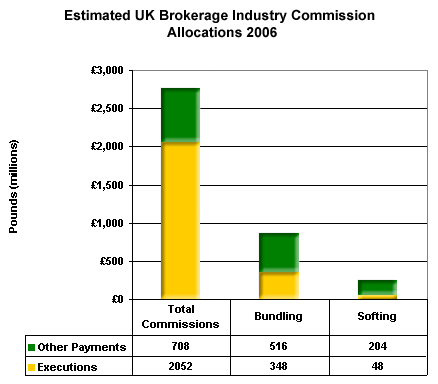Unbundling and Softing Trends in Europe and the US
Abstract
Unbundling and softing regulation in the UK will force brokers to be either execution or research providers, but the impact of similar regulation in the US is likely to be less extreme.
The Financial Services Authority's Consultation Paper, known as CP176, will have a major impact on the brokerage and fund management industries in the United Kingdom. The legislation will result in fund managers increasingly embracing commission-sharing arrangements (CSAs) and reducing trading partners. However, MiFID may replace CP176, so the efforts of the FSA and investment firms may prove fruitless. The outcome of a similar regulation in the US, the SEC Section 28(e) "safe harbor" provision guidance, will have far less of an impact.
In a new report, , Celent outlines the enacted regulations for unbundling and softing in the United Kingdom and the directives under MiFID. The report also compares CP176 with the Section 28(e) "safe harbor" in the US. Celent outlines new arrangements in the UK, CSAs, which have appeared under CP176, a version of which is being adapted for the US market. Finally, Celent underscores how the MiFID directives will potentially affect trading in France and Germany and in continental Europe generally.
Octavio Marenzi, co-author of the report and President and CEO of Celent, said, "Given the more stringent restrictions under MiFID, the inducements directive could well be the death knell for bundling and soft commissions in the European Union."
Celent believes CP176 will cause a shift of £145 million in execution commissions, or 7% thereof, to top brokers for execution purposes annually in the UK, with a shift of £32 million, or 8%, of total bundled and softed commissions to third parties annually. Overall, Celent predicts a 5% gradual decline in commissions over the next few years, or £193 million, due to increased efficiency and transparency.
In the US, the impact is expected to be more negligible. Celent predicts soft commissions could hover in the US$1.85 billion range and then decline to between $1.3 billion and $1.6 billion over the next five years. A good portion of this budget decline is expected to accrue to commission management software firms as well as evaluators of research quality. While more third party research providers could capture some of this soft dollar budget decline, the need to be paid through order flow could hinder these efforts.
David Easthope, co-author of the report and analyst in the Securities & Investments group at Celent, said, "While SEC Section 28(e) "safe harbor" language is amenable to third parties, actual reward mechanisms (payment with order flow) may actually hinder growth in the use of third party providers in the US."

The 31-page report includes 4 figures and 4 tables. A table of contents is available online.

